Why is no one talking about black women abused by police?
The case of former police officer Daniel Holtzclaw is just the latest example of this disturbing trend
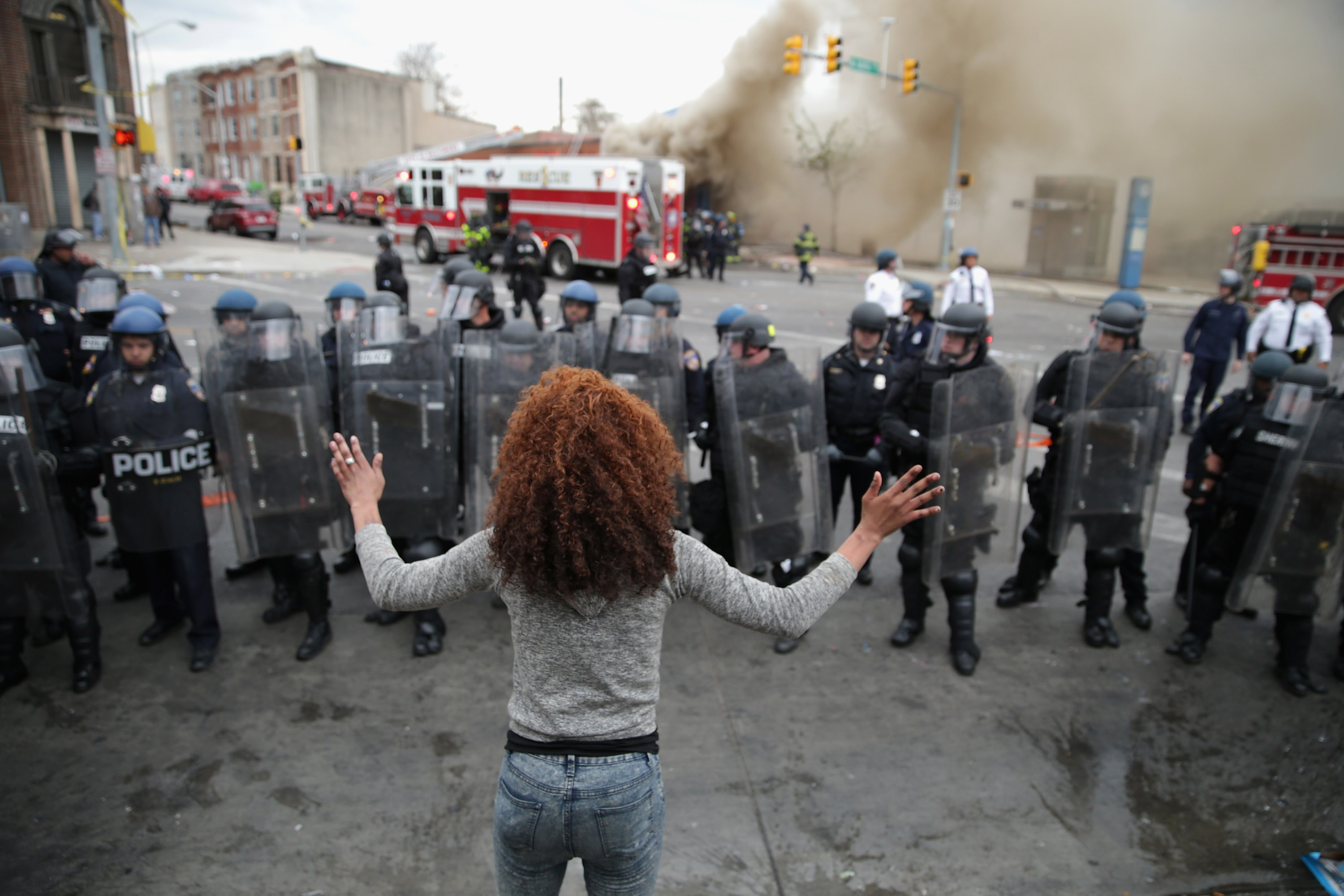
As the trial of former Oklahoma City police officer Daniel Holtzclaw enters the month of December, it is becoming clear that America still has little interest in crimes committed against black women.
Holtzclaw stands accused of sexually assaulting 13 black women between 2013 and 2014 during his daily patrols as an officer. One of his victims claims he drove her to a field and raped her after a traffic stop. Another woman testified during the 14th day of the trial that Holtzclaw forced himself on her inside of his squad car after he stopped her as she was walking away from her home. Some of the women have admitted to performing as sex workers and using illegal drugs, details they claim Holtzclaw threatened to blackmail them with if they decided to report his abuse.
All of these accounts seem like classic cases of police brutality. The only difference is that the ex-cop used sexual violence instead of a gun or a chokehold. These disturbing allegations should evoke national outcries from every corner of American society; black people should be shutting down the streets exalting the victims' names with the same vigor as Eric Garner, Freddie Gray, and other black men whose lives were stolen by the hands of racially predatory police officers. Instead, much of the conversation over Holtzclaw's abuse has been led almost exclusively by black women on social media.
The Week
Escape your echo chamber. Get the facts behind the news, plus analysis from multiple perspectives.

Sign up for The Week's Free Newsletters
From our morning news briefing to a weekly Good News Newsletter, get the best of The Week delivered directly to your inbox.
From our morning news briefing to a weekly Good News Newsletter, get the best of The Week delivered directly to your inbox.
Kirsten West Savali, of The Root, wrote that the dearth of media attention his victims are getting is tied solely to their race. "Imagine what the national response would be if a police officer sexually assaulted 12 white, middle-class women and one underage white girl while on duty," she said. "Pause for a moment and honestly, deeply think about that. I guarantee, this week would not have been the first time many people had heard Holtzclaw's name."
Sadly, West is spot on. But her conclusions aren't surprising, though, given that national consciousness rarely focuses on black female victims.
And there are a lot of them. Most available data, when there is any, focuses on black men's experiences with police brutality, but black women are, without question, generally preyed upon by law enforcement and state entities. A number of recent studies reveal disturbing trends: Black women are locked up in state and federal prisons at more than twice the rate of white women; black girls make up just 14 percent of the U.S. population, but 33.2 percent of girls detained or committed in the juvenile justice system; in San Francisco, black women are 6 percent of the female population but account for 50 percent of the arrests; in New Jersey, black mothers are more likely than white mothers to be deemed unfit parents. An AP investigation also highlighted the high number of cops who have been investigated for sexually assaulting women while on duty. We don't know the ethnic backgrounds of these women, but Holtzclaw's case reveals a disturbing reality when we do know: near silence.
There was one recent exception.
A free daily email with the biggest news stories of the day – and the best features from TheWeek.com
Sandra Bland dominated national headlines for weeks, but the media attention her death generated was a rarity. Meredith Clark, an assistant professor of journalism at the University of North Texas, knows why. Bland's middle class background — college-educated, about to start a new job, well-spoken — provided the wider public the necessary social credentials they needed to embrace her humanity, she told me. That is not true in the case of the women who are accusing Holtzclaw of sexually assaulting them.
"They are harder to identify with because of our all-or-nothing take on morality: Either you are completely innocent, or at the most you sin like me, and then I can identify with you," Clarke wrote in an email. "But it's easier to write off these imperfect victims. Every mitigating factor that the defense has brought up to besmirch their character makes it harder for them to be presented as 'worthy' victims. Through legal, media, and moral lenses, this is exactly how black women are repeatedly dismissed, ignored, and disqualified from being fully human and worthy of inclusion and justice."
But this downgrading of black female victimhood is not just germane to anti-blackness or racism. Black protests movements have long privileged the narratives of black male pain over violence against black women. Though black women are leading the Black Lives Matters Movement, it is the deaths and abuses of black men that evoke the most outcries in our communities. Miriam Carey, Kayla Moore, Shelly Frey, Michelle Cusseux, Mya Hall, and Alexia Christian all died in police custody during the same timeframes as black men whose deaths dominated national news. Their names hardly register.
I remember canvassing a predominately black neighborhood in Brooklyn with fellow community activists this summer and passing out pamphlets about black women killed by police. Most of the people we interacted with struggled to name one black woman killed by police, but could rattle off at least five or six black male victims with ease. As a community, we can't expect the broader American public to care about black women killed by law enforcement when many of us can hardly name one ourselves.
But I also wonder if black respectability politics is playing into the reason why many people in our community aren't being as supportive of Holtzclaw's alleged victims as we could be. Take, for example, the case of Claudette Colvin during the civil rights movement. She actually refused to give up her seat on a segregated bus long before Rosa Parks, but her narrative was ignored because she was a pregnant teenager whom many religious leaders believed would shame the sanctity of the movement. Many black women who risked their lives in the civil rights movement similarly recall how they were consistently shut out of leadership roles and faced sexism from their male movement brothers. Even during the present Black Lives Matter era, prominent black female activists complain about black male activists shouting down their voices during organizing meetings.
It is no wonder that Holtzclaw's trial is getting so little attention. If many of us don't even value the work of black female activists, how can we honor Holtzclaw's alleged victims?
The media can do better, too.
Some will argue that it is challenging to cover Holtzclaw's alleged victims because many of them are sexual assault victims whose names are shielded from the public record. But we don't need to know their names to cover their stories. Thirteen very vulnerable black women claim Holtzclaw raped and sexually assaulted them. That is all we need to know. Local news outlets are covering the case, but CNN, NBC, CBS, and every other major outlet should be in Oklahoma City reporting this case. They aren't. The only conclusion I can surmise is that American newsrooms don't see black female victimhood as "newsworthy."
Rachel Dolezal, a white woman parading as an African American, however, earned spectacularly ridiculous nuance from the media. Ebony Senior Editor Jamilah Lemieux penned a piece charging her supporters with "Miss Ann" syndrome, an assertion that white women earn victim status for the most flimsiest of reasons due to American society viewing white femininity as a sacred, delicate cultural treasure. Meanwhile, real black women with real black woman problems strain to earn one-tenth of Dolezal's media attention.
This is the society we live in: Faux black women get more national media play than real ones. As troubling as America's treatment of black female victimhood is, there are plenty of opportunities for us to reverse our thinking. I know dozens of black women around the country who are amplifying the names of black female victims of police violence. Many of my colleagues in the media are also doing their part. Kimberly Foster, founder of the site For Harriet and a born and raised resident of Oklahoma City, wrote one of the best reports on the Holtzclaw case yet. Columbia Law professor Kimberly Crenshaw and her colleagues in academia and the protest movement started #SayHerName, a social media-friendly brief detailing violence black women have endured at the hands of police.
These efforts need to be duplicated ad nausea; America is at a severe empathy deficit when it comes to black women.
Every American — in the media, law enforcement, academia, and elsewhere — must dig deep into their consciousnesses and ask themselves if all lives truly do matter.
Terrell Jermaine Starr is a New York City-based journalist who covers U.S. and Russian politics. His twitter handle is @Russian_Starr.
-
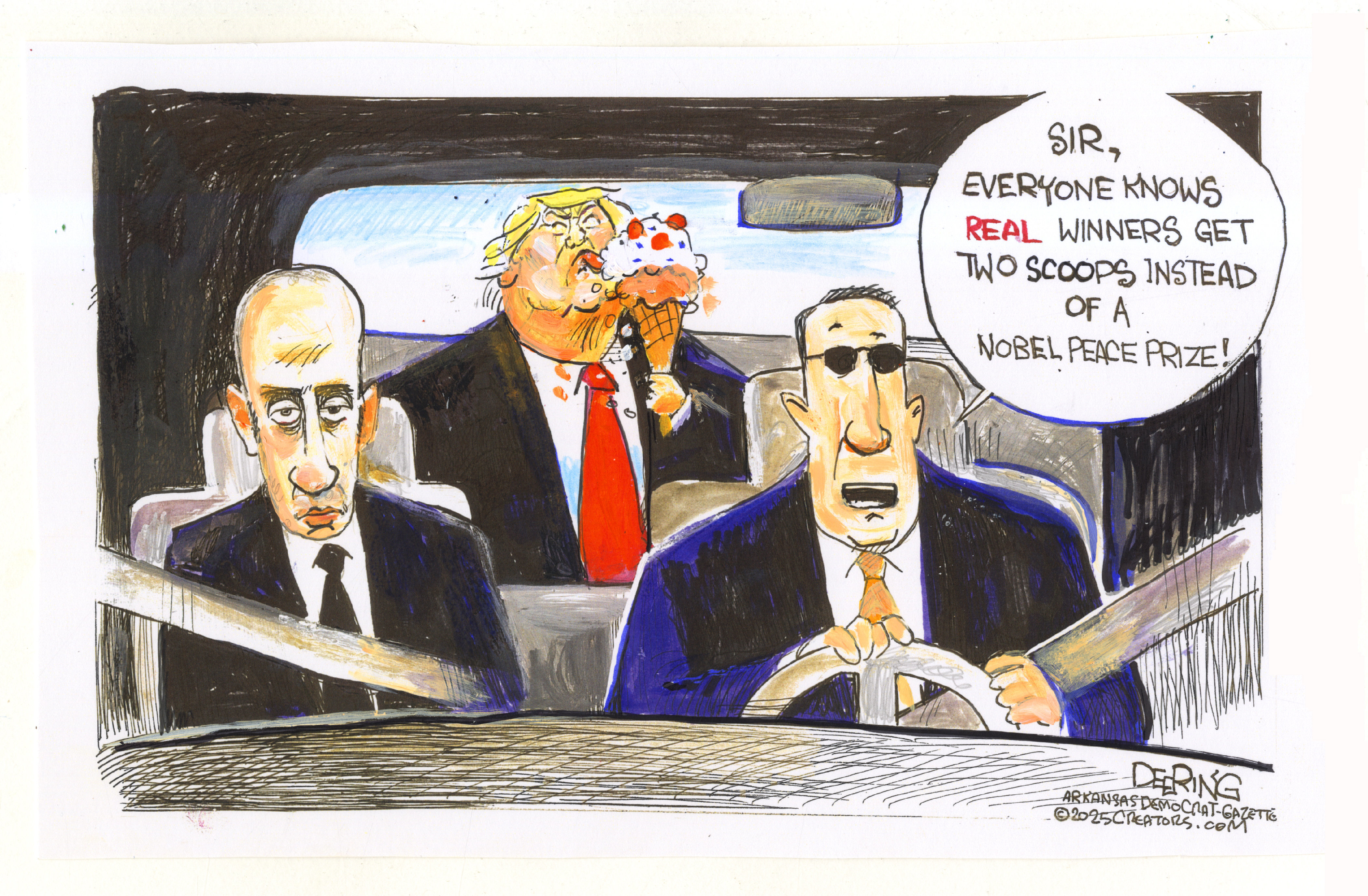 October 13 editorial cartoons
October 13 editorial cartoonsCartoons Monday's political cartoons include Donald Trump's consolation prize, government workers during shutdown, and more
-
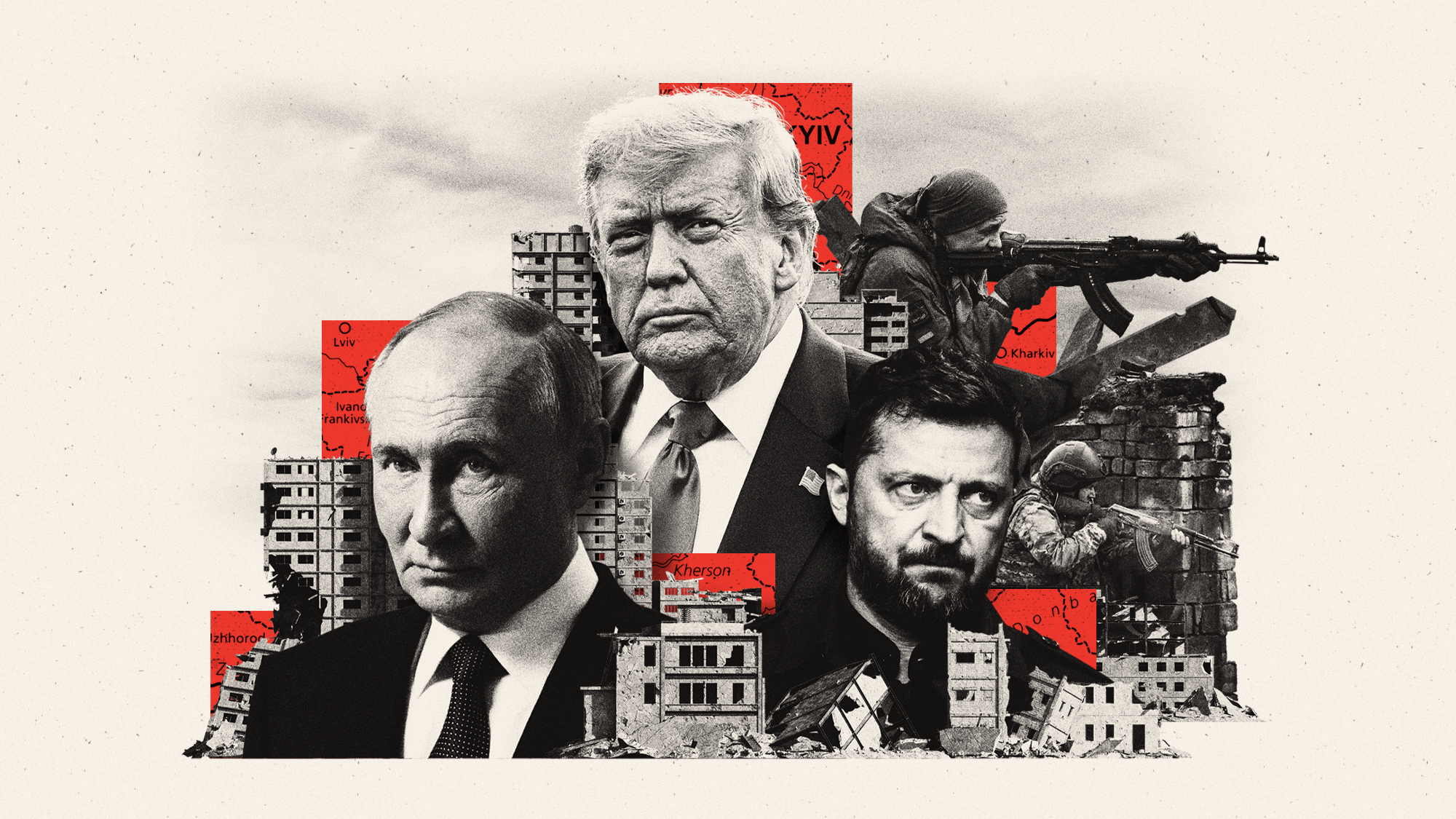 Can Gaza momentum help end the war in Ukraine?
Can Gaza momentum help end the war in Ukraine?Today's Big Question Zelenskyy’s request for long-range Tomahawk missiles hints at ‘warming relations’ between Ukraine and US
-
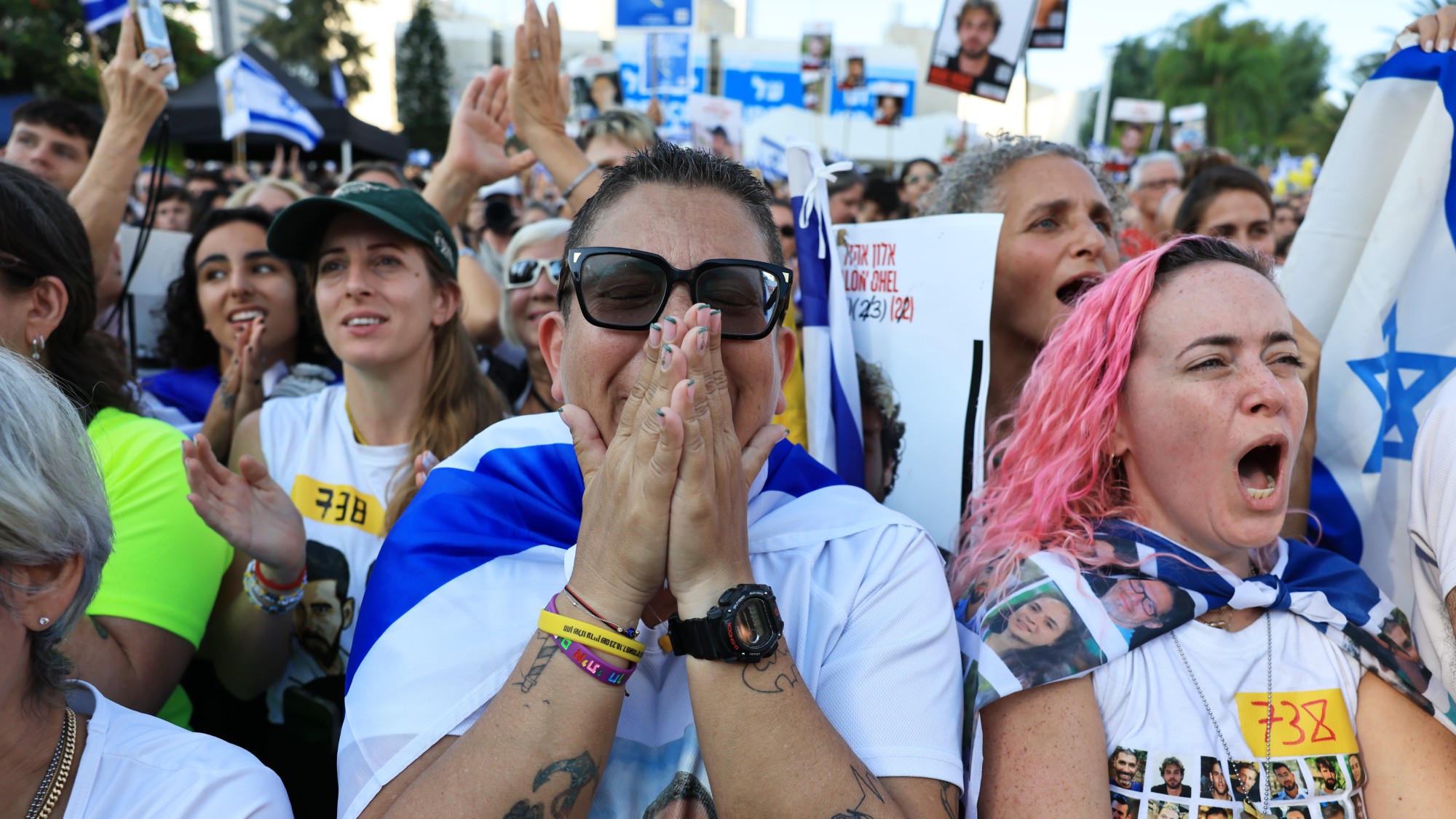 The Israeli hostages and Palestinian prisoners being released
The Israeli hostages and Palestinian prisoners being releasedThe Explainer Triumphant Donald Trump addresses the Israeli parliament as families on both sides of the Gaza war reunite with their loved ones
-
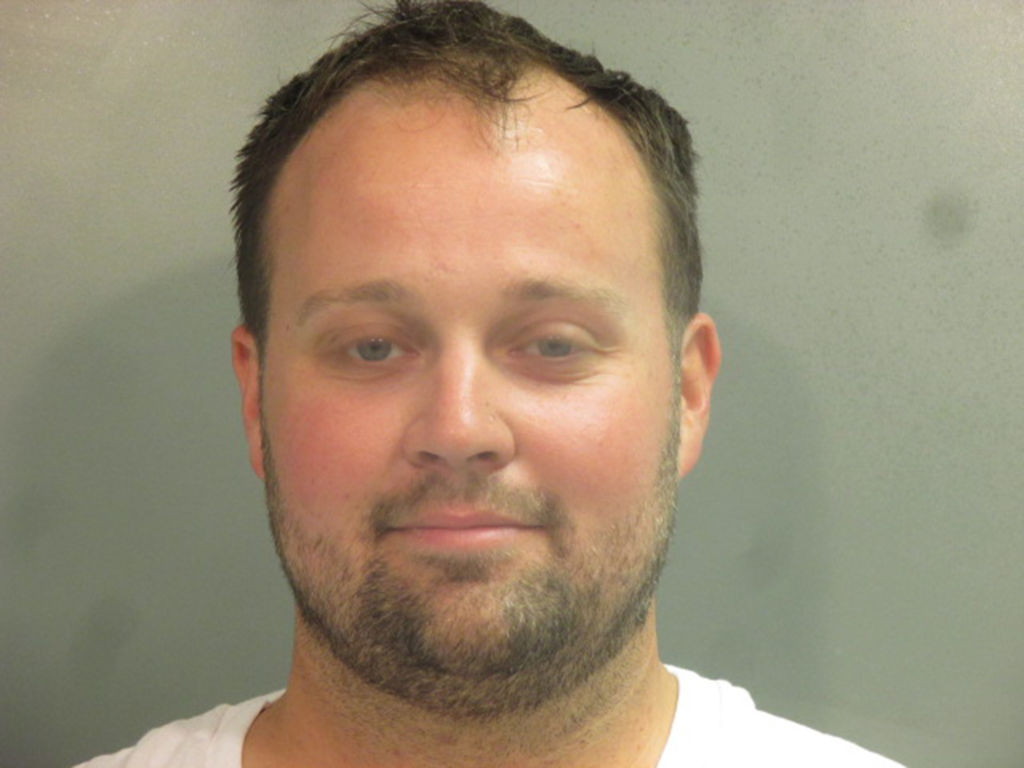 19 Kids and Counting's Josh Duggar hit with child pornography charges
19 Kids and Counting's Josh Duggar hit with child pornography chargesSpeed Read
-
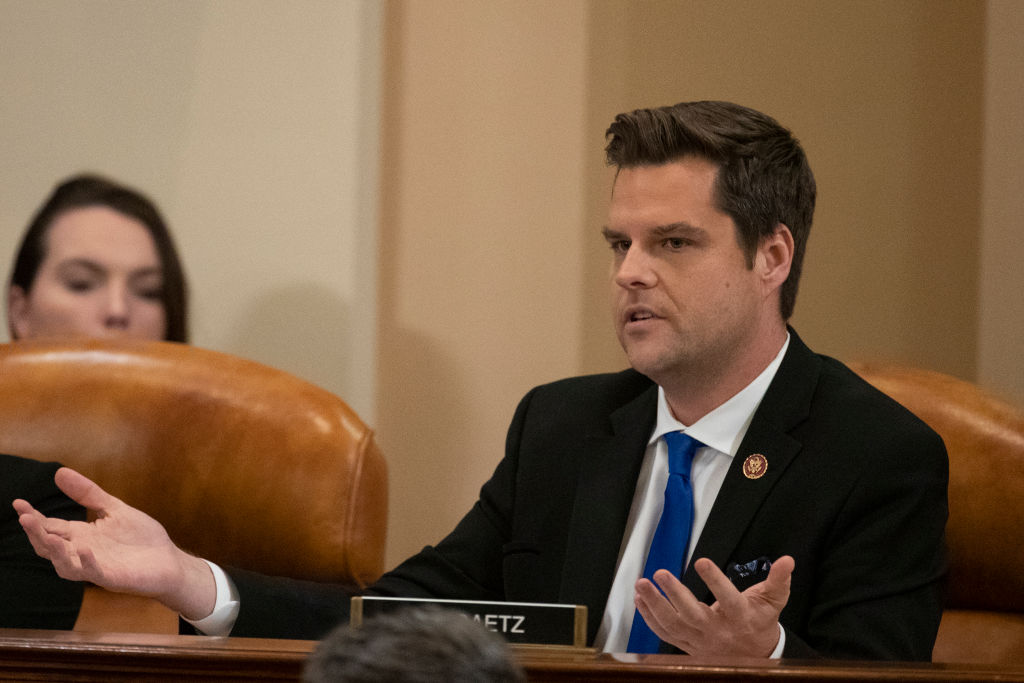 Matt Gaetz was the main opponent of Florida's nonconsensual 'revenge porn' law, GOP lawmaker says
Matt Gaetz was the main opponent of Florida's nonconsensual 'revenge porn' law, GOP lawmaker saysSpeed Read
-
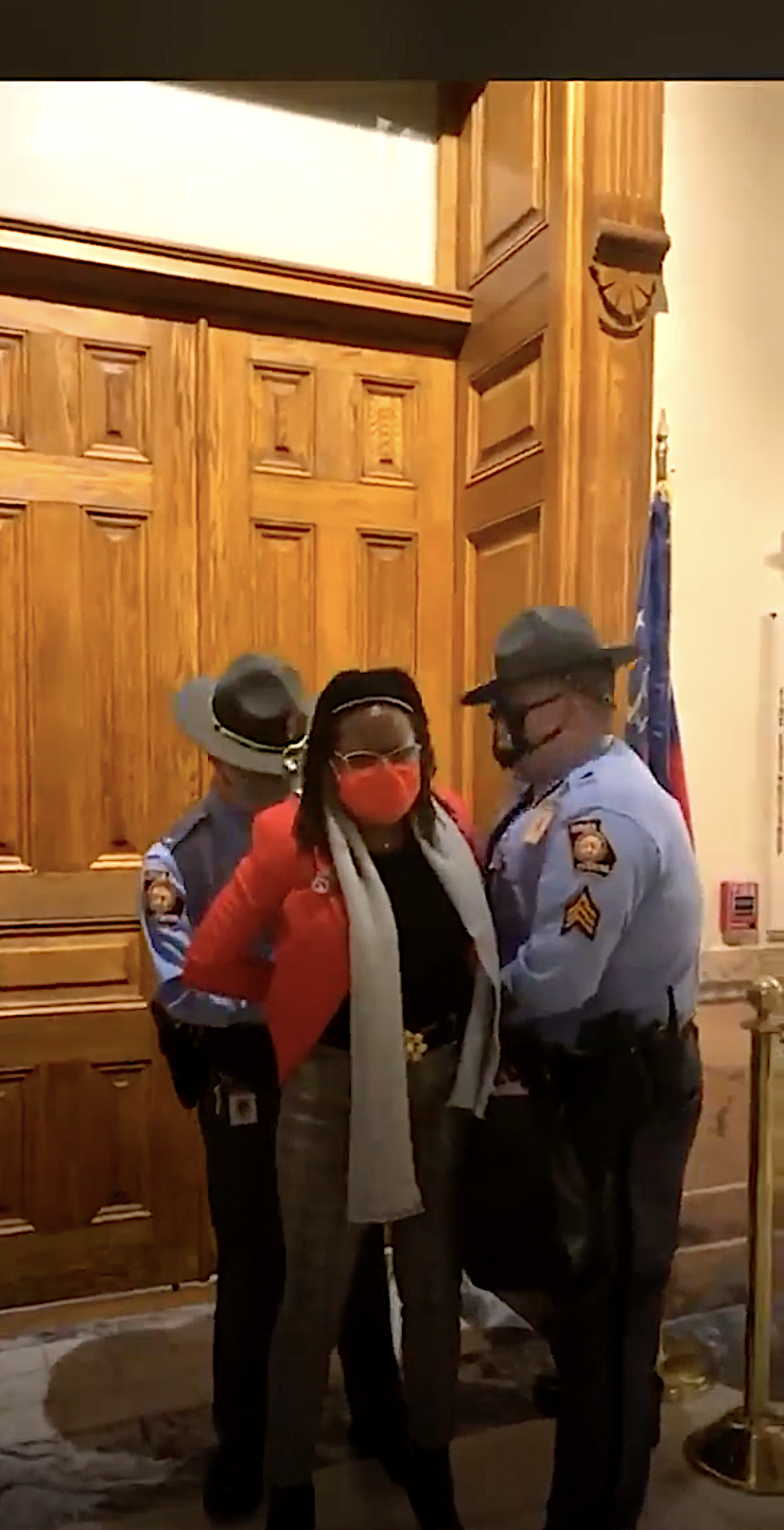 Georgia police arrest Black lawmaker for knocking as Gov. Brian Kemp signed new voting restrictions
Georgia police arrest Black lawmaker for knocking as Gov. Brian Kemp signed new voting restrictionsSpeed Read
-
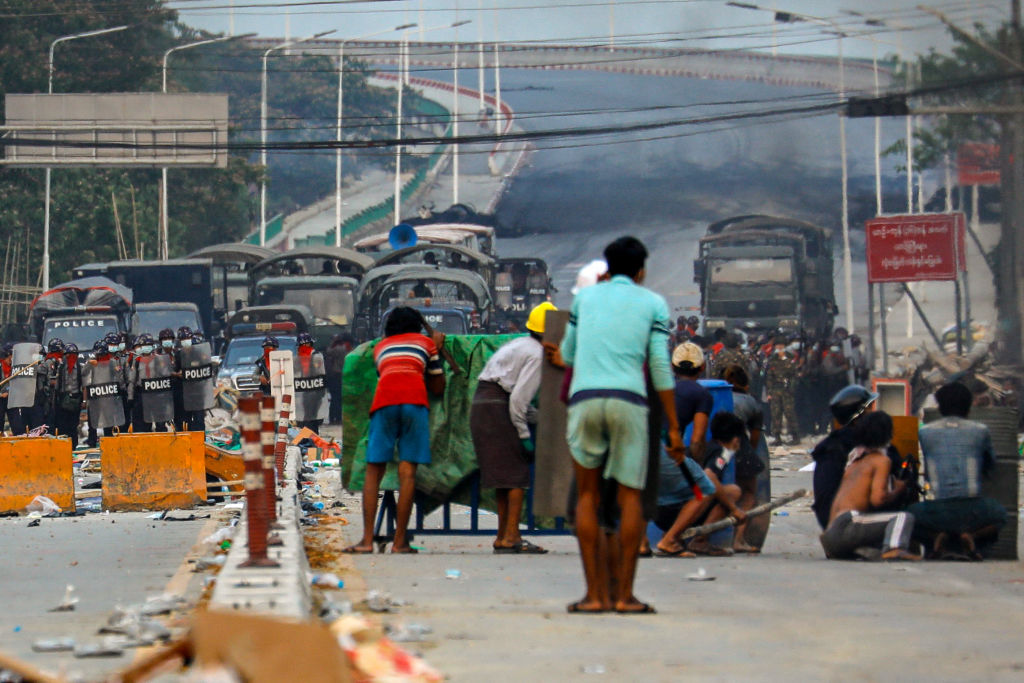 Myanmar junta reportedly kills 38 protesters, declares martial law in part of Yangon
Myanmar junta reportedly kills 38 protesters, declares martial law in part of YangonSpeed Read
-
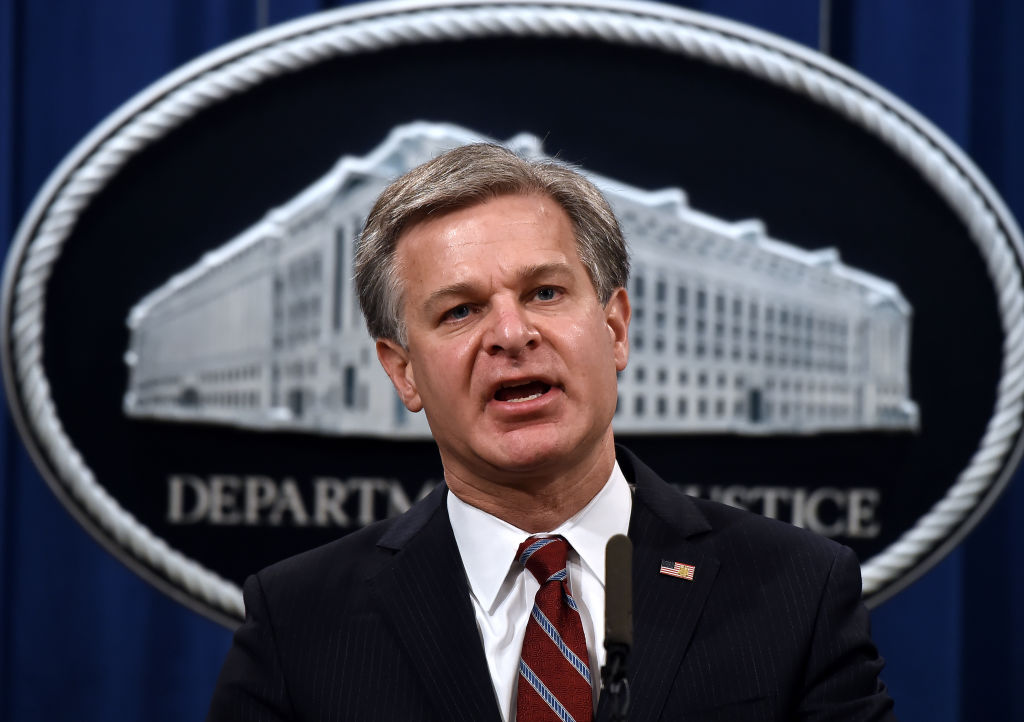 Raskin asks FBI for answers on how it's targeting white supremacists in law enforcement
Raskin asks FBI for answers on how it's targeting white supremacists in law enforcementSpeed Read
-
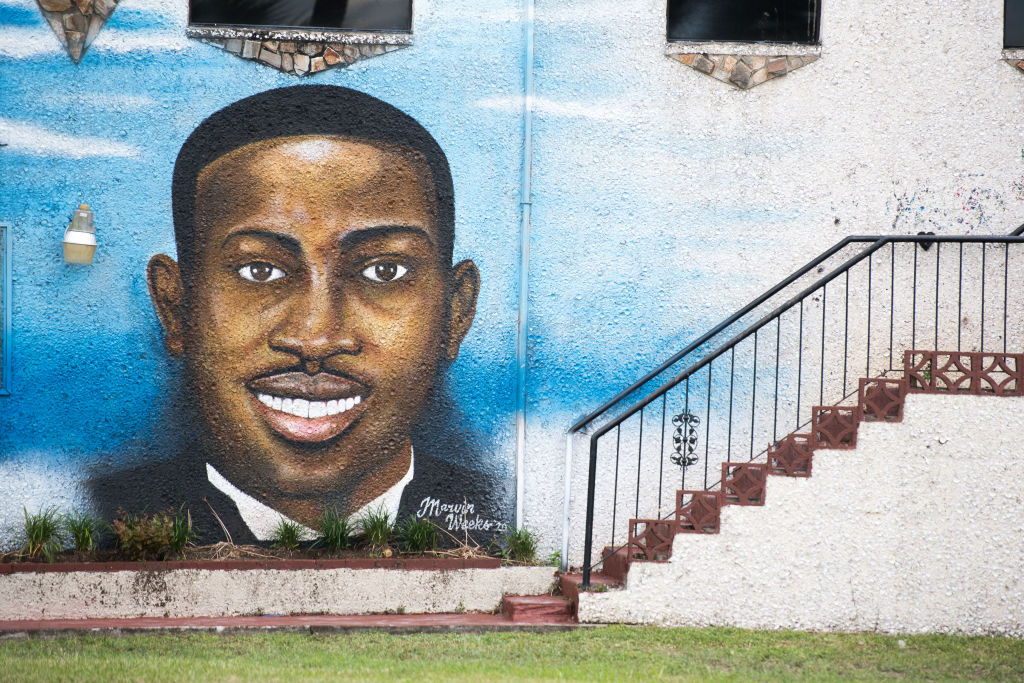 Ahmaud Arbery's mother files civil rights lawsuit 1 year after his death
Ahmaud Arbery's mother files civil rights lawsuit 1 year after his deathSpeed Read
-
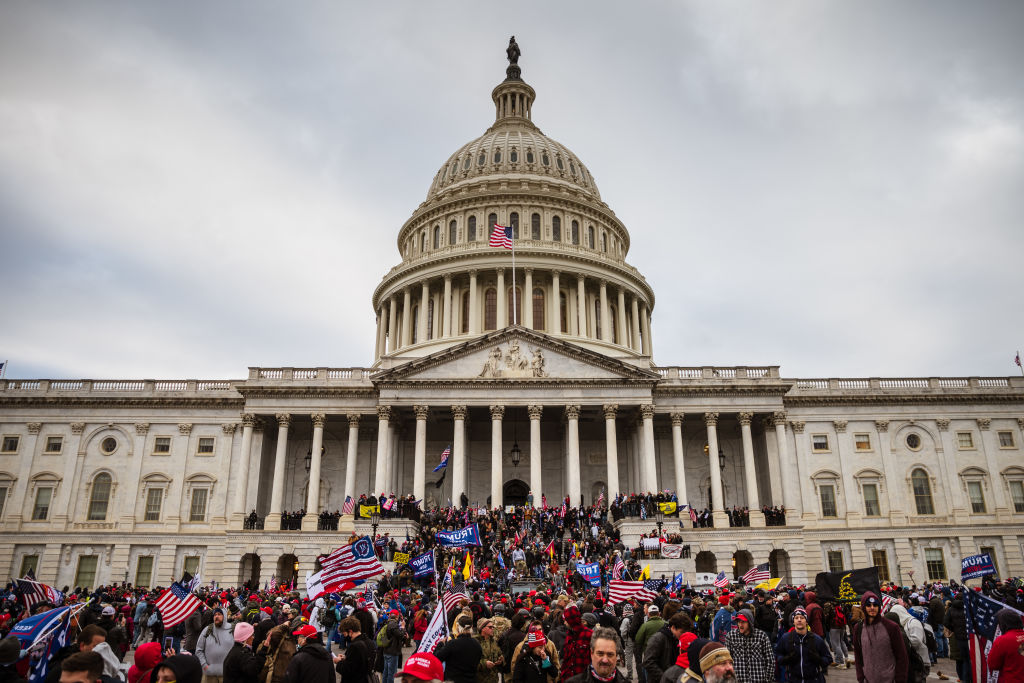 Lawyer for man charged in Capitol riot says he worked for the FBI, had top-secret security clearance
Lawyer for man charged in Capitol riot says he worked for the FBI, had top-secret security clearanceSpeed Read
-
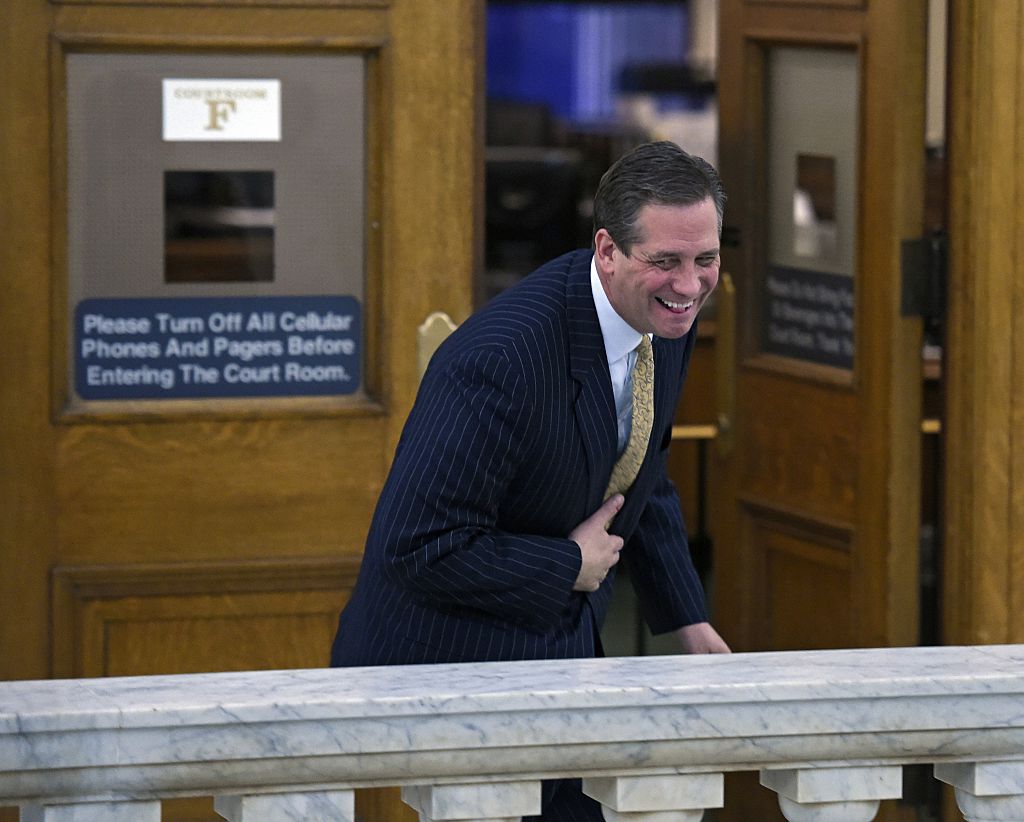 Trump's impeachment lawyer specializes in medical malpractice and 'people falsely accused in Me Too cases'
Trump's impeachment lawyer specializes in medical malpractice and 'people falsely accused in Me Too cases'Speed Read